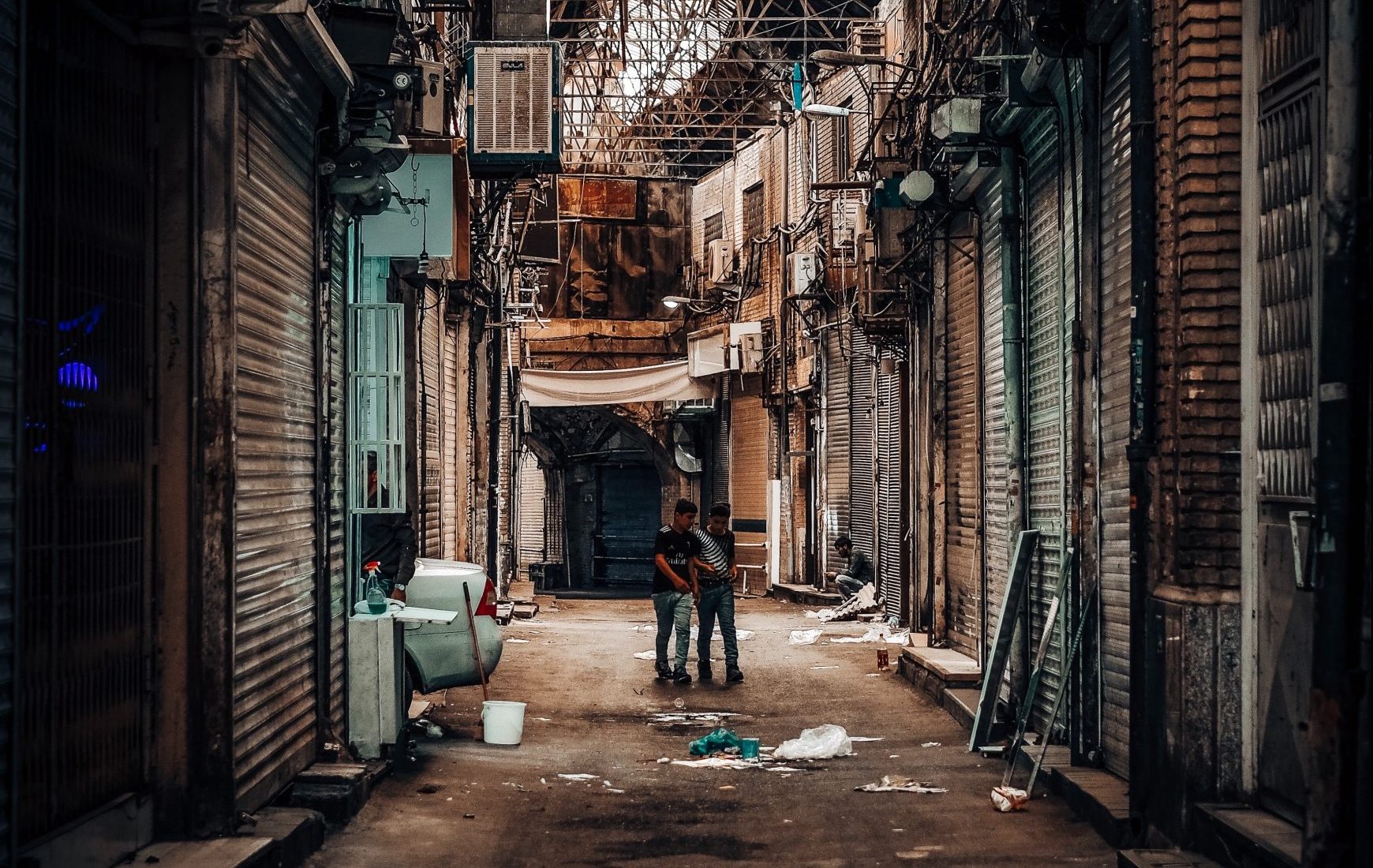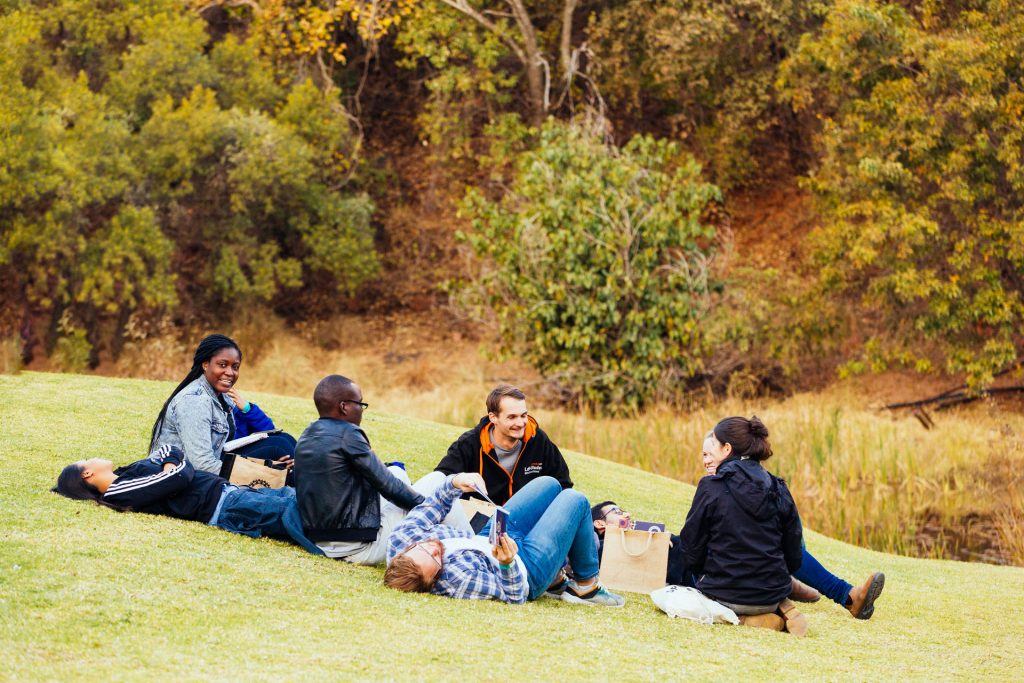
Because he is my brother
Central Asian students confront discrimination against international students
This was not what Arjun* had in mind when he dreamed of being a doctor. He stumbled backward as the man advanced. The man was shouting hateful words. Go back to where you came from! His eyes were wild. In his peripheral vision Arjun noticed someone else approaching, stalking their group of six students. His friend let out a cry – the shouting man had kicked him! Arjun noticed more men emerging. They were everywhere – he counted twenty of them. As they closed in with fists raised, Arjun knew this would not end well. He lifted his eyes, and just before he felt the first blow, he noticed a police officer leaning against a wall, silently watching.
Arjun remembered his little white coat. He loved to dress as a doctor when he was a child. His parents were so proud when he had told them that he wanted to study medicine. When he learned he could attend medical school in Central Asia for a fraction of the price in India, his mind was set. The admissions counselor made it sound easy. The city would be modern and exciting. Everyone would speak English. Six years abroad would be a breeze.
But the admissions counselor had lied. It did not take long for Arjun to realize that the situation was not as perfect as he thought. At the airport, the student coordinators forced Arjun and his friend Veer* to hand over their diplomas. They and the other Indian students were crammed inside a taxi and sent eleven hours away to their study destination. Hungry and nervous, they were unable to communicate with the driver, who only spoke the local language. But that was the least of their worries. They soon realized that as Indians, they faced heavy discrimination from locals.
They were warned not to stay out later than five o’clock, as a minor encounter with the wrong people could quickly become dangerous. Wallets and bags were stolen from their friends in broad daylight. Their elementary skills in the local language rendered them helpless. But there was one word they understood well – “black.” As they walked through markets children shouted it at them while their parents pointed fingers.
The discrimination continued on campus. Following their first exam, Arjun and Veer stood in a long line, waiting for their results. After an hour, all 200 names of their peers had been called, yet the two students remained outside. They began to panic. What happened to our tests? The door opened and their group leader stepped through.
“The professor is wondering when you are going to pay him.”
Unbeknownst to Arjun and Veer, the professors routinely withheld marks from students who did not pay a bribe. Indian students paid a premium. While their local classmates paid the equivalent of 15 USD for a good mark, Arjun and Veer were forced to pay the equivalent of 200 or 300 USD. But sometimes they did not have the chance to take the test at all. While students waited to enter the exam room, some professors would find small excuses to remove them. Once Veer was barred for wearing a hoodie. Another time, Arjun was removed because he had a beard.
Despite their best efforts to understand the local people, Arjun and Veer were constantly shocked by their treatment. Six years stretched hopelessly before them as they considered a life without allies. Unable to find relief from the stresses of their coursework and the dangers of the city, the students felt emotionally homeless. This continued until their Indian classmate, Sai*, met a local peer named Adel*.
Adel had never known any Indians before. But as she chatted with Sai after class, she realized he needed a friend. She invited him to her IFES group. Then Sai invited Arjun and Veer. In a matter of weeks, 15 more Indian students attended regularly. There, the students met Omar* and Elina*, the local IFES staff, who welcomed them into their lives. Finally, they had local friends.
Omar and Elina were the first people that Arjun and Veer called after they were beaten up on their walk home from class. The two staff members rushed them to the police station – where the police advised the students not to file a report. Still, Arjun and Veer took comfort in the fact that they had someone to call. These relationships completely changed their experience. Adel began offering her help for anything they needed. She accompanied them to the markets and haggled over rent prices with landlords. By simply being present, she dramatically changed how locals reacted to the Indian students.
But other locals did not understand why Omar, Elina, and Adel cared about the foreigners. When Adel walked with them, they called out to her, asking if the Indians were a bother. Sometimes they challenged her. Once she accompanied Veer to the clinic to make sure he was not overcharged. When she refused to accept the exorbitant price, the doctor became angry. He questioned why she would go to such lengths to protect an outsider. Adel’s response was simple and salient.
“He is my brother,” she said. “This is what you do for family. You protect them.”
In truth, Arjun, Veer, and the other Indian students did find a family with the IFES movement in Central Asia. Worshipping and studying the Bible with Omar, Elina, and Adel carried them through the darkest hours of their studies. These friends were their allies in a culture that rejected them. Arjun describes his local Christian friends as people of integrity.
“They always stood for the right things,” he says. “They backed us up.”
In many places, foreigners like international students, refugees, and immigrants navigate blatant discrimination in their new society. Christians like Omar, Elina, and Adel are taking the opportunity to welcome these people by demanding justice on their behalf. They have even risked their own social status to do so. Their actions honor God’s command to treat the foreigner as “your native-born,” (Leviticus 19:33-34) and bear witness to God’s love for all nations and peoples.
How can you be an ally to the foreigners around you? What can you do to pursue justice on their behalf?
*name changed




